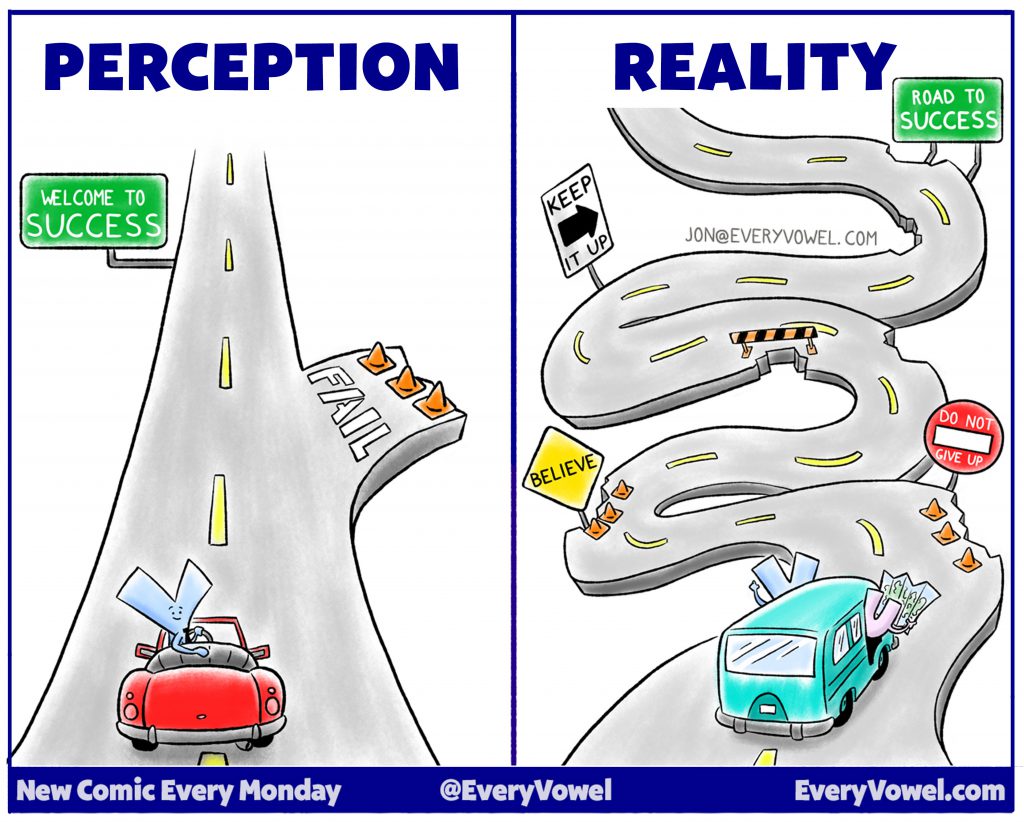By Alison Howard
Alison Howard is a PhD candidate in Comparative Literature at the University of Pennsylvania. As the Graduate Outreach Fellow at Career Services, she helps PhD students and post-docs explore non-faculty careers
Congratulations! You’ve decided to exit the ivory tower and begin your quest for non-faculty jobs. Or maybe you’re still committed to landing that coveted tenure-track position but are nonetheless interested in exploring expanded careers. For most students, discussing these life choices with their adviser is as appealing as a day in the Augean stables. But you needn’t wake up in a cold sweat each night, agonizing over “the talk.” We’ve compiled some essential information on when to broach the subject, how to prepare for the conversation, and how to turn your adviser into an ally when transitioning to a new career.
When to bring it up
This one is open to debate, but most professors agree that earlier is better. As Brenda Bethman and C. Strong Longstreet write, “If you are at the end of your degree, you probably do not want to surprise your adviser with what might seem an abrupt change of intent, or worse, that you are sneaking behind his or her back. Your adviser is an important reference, no matter for which position you will apply.” However, if you’re concerned that telling your adviser will lead to reduced support from your department or will negatively impact your funding, it’s okay to wait. If possible, try to enlist the help of former students from your department who’ve gone the alt-ac route in order to gauge how faculty members are likely to respond.
If you have a good relationship with your adviser, you can probably broach the subject as soon as you begin to contemplate non-faculty careers. At the latest, a conversation should happen by the time you’re applying for jobs (probably at the beginning of your final year of grad school). I made the mistake of simply avoiding my adviser in hopes of delaying “the talk” indefinitely, until he finally cornered me on a bus and asked about my job market plans. Needless to say, I wasn’t able to deliver a compelling justification of my career choices amidst the bumps and jolts of public transportation.
How to prepare for “the talk”
Don’t underestimate the emotional toll this kind of conversation can take. Think about what you need in order to mentally prepare. Maybe you need to meditate first, or dance around the living room, blaring pop anthems until you’re properly hyped. Maybe you need to role-play so you aren’t making things up in the heat of the moment. If you can find an ally on your committee or in your department, practicing with them is a great place to start. If not, ask a friend or fellow student (and your cat will do in a pinch). Whatever your particular strategy, it’s okay to take some time to prepare.
L. Maren Wood recommends making a list of your push/pull factors. The push factors are the reasons you’re leaving academia: the state of the academic job market, financial obligations, geographical limitations. Most advisers will understand that family, personal, and financial pressures can limit your career choices, so focus on those.
Pull factors are the reasons you’re attracted to another career. As Wood explains, “Pull factors are […] a chance for you to be positive about your graduate-school experience and highlight the possibilities awaiting you outside academe.” For example, you might communicate that, although you enjoy teaching, you’re interested in a career where you can reach a broader audience. Perhaps you’ve engaged in community-based research as part of your graduate work and would like to explore careers in community outreach or social services. Or you may prefer to do research full time, without the teaching and administrative responsibilities of a tenure-track position.
Finally, make sure you’ve spent some time researching your options. Do informational interviews, talk to alumni, and investigate companies or organizations you’re interested in—then come prepared to share what you’ve learned with your adviser. This conversation is your chance to demonstrate that you’re not running away from academia, but rather toward something else. The more concrete you can be about the opportunities you’ve discovered, the better.
Keep it positive!
There are countless reasons for wanting to explore alt-ac careers, and you should be honest with your adviser about your motivations. However, it’s best to focus on the positive potential of a new career, rather than complaining about research, teaching, colleagues, or the job market (even if those things really are terrible). Longstreet and Bethman recommend that you “frame your alt-ac career options as an organic extension of your talents and interests; this will make your conversation much more productive.”
One former PhD writes:
My leaving had everything to do with my realization that my ideal job involved both a different path and different set of tasks than the Ph.D. provided. While I valued my experiences and training, I realized I no longer wanted to do research. This made my leaving a lot easier for the faculty to process. Many of the people who questioned my leaving were not trying to undermine my decision, they simply wanted to make sure I had thought everything through. Many felt shocked and surprised by my decision, and felt obligated to ask about how I arrived at my choice. Several alluded to the fact that I was a successful graduate student, and seemed genuinely perplexed that someone who was not having problems would chose to leave. If you decide to quit don’t be shocked or upset if people ask why. Understand that questioning does not mean that you are being judged for your decision.
Don’t forget to consider your adviser’s emotions, too. As Doug Kalish explains, “You need to be careful not to represent your decision as a repudiation of their career choice. Be alert for signs that your adviser is feeling rejected or defensive, and go to lengths to assure them this decision is about you, not them.” Again, the goal is not to denigrate your PhD program—even if you had a negative experience.
Finally, don’t feel like you need to apologize for your decision. Jena Pitman-Leung acknowledges that you may feel guilty or like you’ve disappointed your adviser, but even if you get a less-than-supportive response, it’s important to stay positive. She recommends presenting the news as an exciting career transition, not as a backup plan. “The more self-reflection you do ahead of time and the more confident you are in your decision, the easier this will be.”
The emotional aftermath
Think about what you need in order to recover afterwards, whether it be time alone, a good cry, or a drink with friends. No matter how well it goes, it’s going to be stressful, so allow yourself the time and space to cope.
Finally, Doug Kalish advises students to “seek out help if you need it. If, after having a conversation with your adviser, you feel that things haven’t gone well, then it’s best to find some support. If your department has a graduate or career counselor, enlist their help. Sympathetic faculty or alumni are also a good resource. Failing these options, most colleges have an ombudsperson on campus to handle situations like this.”
A happy ending?
Lest we end on a dismal note, it’s always possible that your adviser will not only be understanding but also helpful as you begin your alt-ac job search. Odds are, they know former students or colleagues who have successfully made the switch and would be happy to connect you with those contacts. Though some advisers are still painfully oblivious to the dire state of the academic job market, others are more realistic and are therefore invested in helping students land positions in a wide range of industries.
As Wood writes:
Instead of being hostile, it’s more likely that your advisers will encourage you to keep applying for teaching jobs because you are fabulous and talented. They may see your nonacademic quest as temporary. That’s a benign fantasy on their part, and a compliment. It means they value your academic work. Tolerate their academic fantasies about your future, so long as they are also supporting you in your nonacademic career explorations.
At the very least, you can rest easier knowing that countless PhDs have initiated this same conversation with their advisers—and survived to tell the tale.
If you’re interested in learning more about your career options, we encourage you to explore the Career Services website or make an appointment with a Career Services adviser by calling 215.898.7530. We can help you identify resources and opportunities to aid in your career exploration and job search.







